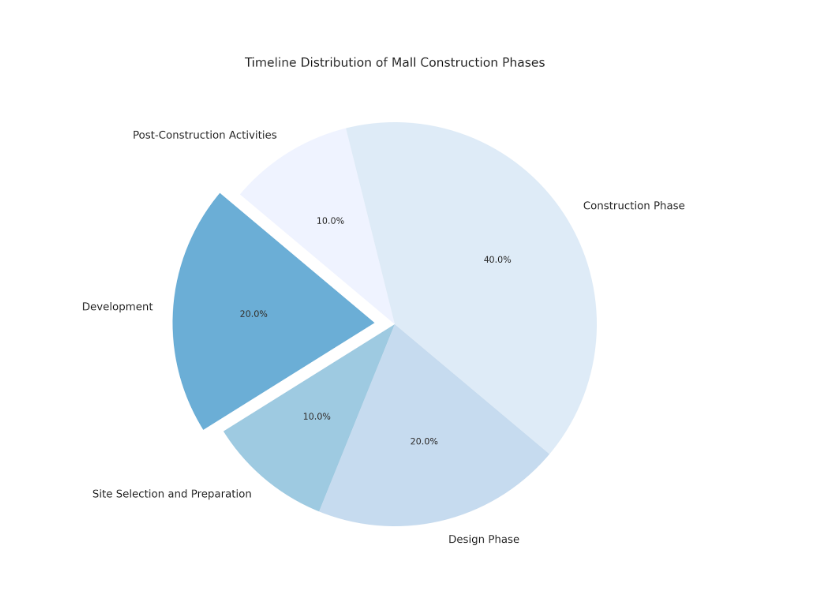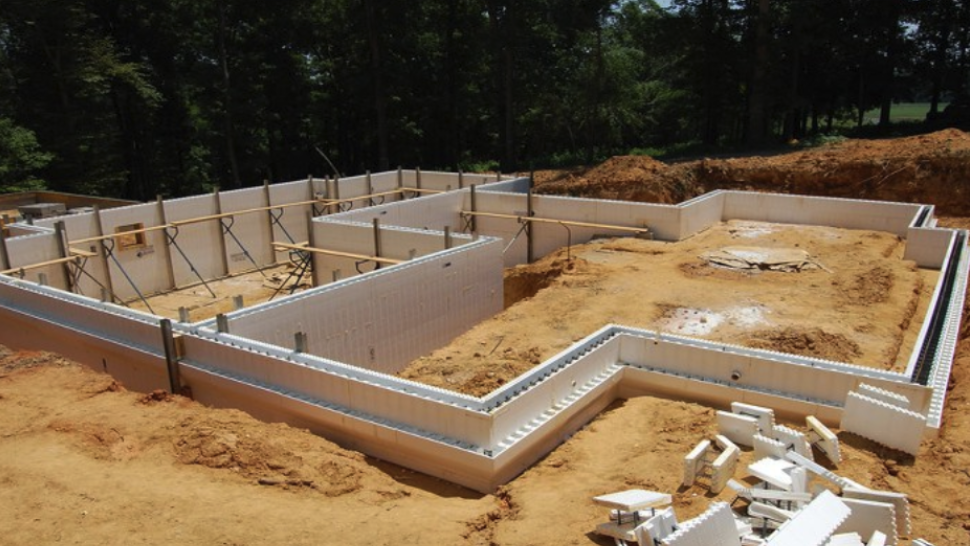
How to Build a Shopping Mall: Key Steps and Considerations

Shopping mall construction is a complex and rewarding process that requires careful planning, efficient execution, and sustainable design. From site selection to final inspections, every step contributes to creating a thriving retail destination. Developers often ask questions like, "how long does it take to build a mall?" The timeline depends on factors such as project scale, design complexity, and material choices.
How Long Does it Take to Build A Mall - 5 Phases
1. Initial Planning and Development
Planning is the first step in any successful shopping mall construction project. Market research helps developers understand local demographics, shopping trends, and competition. This data ensures the mall aligns with community needs and has a strong potential for long-term success.
Developers must also address timelines early. One of the most common questions people ask is, "How long does it take to build a mall?" Smaller projects with straightforward designs can be completed in 12–18 months, while larger malls with extensive amenities often take 2–3 years. A well-structured business plan, including financial projections and operational strategies, helps streamline this process and avoid unnecessary delays.

2. Site Selection and Preparation
The location of a mall can make or break its success. Developers prioritize accessibility, visibility, and proximity to high-traffic areas when choosing a site. Environmental assessments and soil testing confirm whether the location is suitable for shopping mall construction.
Timelines are influenced by preparatory steps such as zoning compliance and permitting. Ensuring the site meets commercial zoning requirements and securing the necessary approvals not only prevents legal hurdles but also plays a role in determining how long it takes to build a mall. With these tasks completed efficiently, developers can move forward confidently into the construction phase.
3. Design Considerations
Thoughtful design is integral to creating a functional and attractive shopping mall. Architects and engineers collaborate to design layouts that enhance shopper experiences and adapt to changing retail needs. Deciding whether to structure should be one-story or multiple stories is a major consideration. Features like spacious corridors, natural lighting, and inviting communal areas make malls more appealing to visitors.
ICFs can be designed and utilized for tall walls. They are also compatible with any floor or roof system.
In the design phase the availability of materials and labor are key elements to the overall schedule. ICFs have been shown to save months on the overall completion timeframe for commercial projects.
4. Construction Phase
The construction phase is pivotal in determining how long it takes to build a mall. This stage involves multiple components, including foundation work, structural framing, utility installation, and interior finishing.
Foundation and Structural Framing
A solid foundation is crucial for any shopping mall construction project. ICFs from Fox Blocks are increasingly popular for their ability to integrate insulation and structural framing into one efficient process. This innovation speeds up construction timelines while enhancing durability and energy performance.
Using ICFs offers several benefits:
Time Efficiency: Modular ICF systems reduce labor demands, helping projects stay on schedule, and ICFs can be constructed in cold weather, eliminating seasonal delays.
Resilience: ICFs resist extreme weather, moisture, and pests, resulting in low maintenance costs.
Energy Savings: Continuous insulation minimizes energy loss, contributing to a comfortable environment.
Integrated Construction: ICFs combine six building products into one application, reducing the number of contractors required to build exterior wall assemblies.
Utility Integration and Systems Installation
Electrical, plumbing, and HVAC systems are installed after the foundation and framing are complete. By using ICFs, developers ensure airtight construction, which improves system efficiency and reduces energy consumption. This integration supports both sustainability and occupant comfort.
Interior Finishing and Tenant Customization
The interior finishing phase shapes the mall's final appearance. Walls, ceilings, and flooring are completed, often leveraging the smooth surfaces provided by ICFs for faster installation. Developers also customize spaces to meet tenant needs. ICF adaptability allows for modifications without compromising structural integrity, ensuring long-term flexibility.
Quality Control and Inspections
Regular quality checks are essential during shopping mall construction. Inspections ensure that materials, such as Fox Blocks’ ICFs, are installed correctly and perform as intended. These rigorous standards help maintain safety and energy efficiency, meeting the expectations of developers and occupants alike.
5. Post-Construction Activities
Once construction concludes, attention shifts to preparing the mall for operation and attracting tenants and shoppers.
Thorough inspections ensure the mall complies with building codes, and occupancy permits confirm readiness for public use. These steps are critical in determining how long it takes to build a mall.
Marketing strategies are essential during this phase. Developers highlight the mall’s unique features, including energy-efficient construction and prime location, to generate excitement among retailers and shoppers. Promoting the use of Fox Blocks’ ICFs as part of the mall’s sustainability efforts can also serve as a selling point, appealing to environmentally conscious consumers.
Leasing agreements play a significant role in creating a vibrant retail environment. Securing a diverse mix of tenants ensures the mall offers a variety of shopping, dining, and entertainment options. A well-rounded tenant portfolio encourages repeat visits and positions the mall as a central hub in the community.
Finally, ongoing maintenance plans are established to keep the mall operating efficiently. Utilizing durable materials like ICFs reduces long-term maintenance needs, allowing developers to focus on enhancing the shopping experience. These efforts contribute to the mall’s reputation as a safe, comfortable, and enjoyable destination for all.
Energy Efficiency and Sustainable Materials

Modern shopping mall construction emphasizes energy efficiency and sustainability. Advanced HVAC systems, LED lighting, and high-performance materials reduce operational costs and environmental impact. Insulated Concrete Forms (ICFs) from Fox Blocks are a standout choice for meeting these objectives.
Fox Blocks’ ICFs provide continuous insulation, improving energy efficiency and creating a comfortable indoor environment. By supporting Net Zero energy goals and achieving low HERS ratings, ICFs help developers create malls that align with modern sustainability standards.
Benefits of Fox Blocks’ ICFs
Energy Efficiency: Substantially, reduces heating and cooling costs with continuous insulation.
Durability: Provides structural strength to withstand environmental stressors.
Comfort: Enhances air quality and thermal stability for occupants.
Sound: reduces exterior noise and sound transmission between units
Build with Confidence Using Fox Blocks
Fox Blocks’ Insulated Concrete Forms simplify shopping mall construction and enhance long-term performance. By providing unmatched energy efficiency, structural durability, and comfort, these materials help developers meet modern building standards while maintaining sustainable practices.
Contact us today for more information.